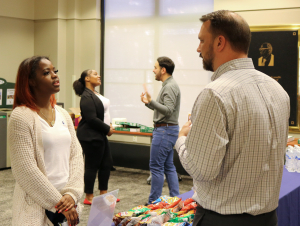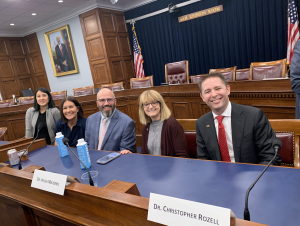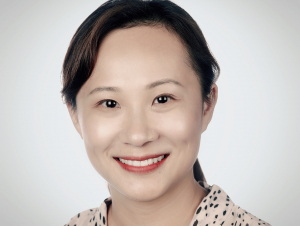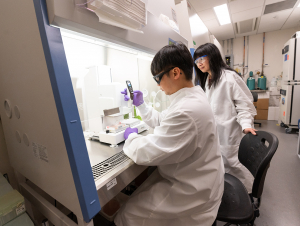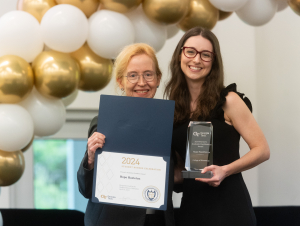Latest News
Experts in the News
One of the most popular pop psychology concepts to take hold in recent years is that of the “growth mindset.” The belief that you can improve your mental powers (grow your brain) can be a powerful tool in helping you actually achieve the success you desire. The converse mindset, or “fixed,” keeps you tied so heavily to the idea that you need to perform well that you fear doing anything that could jeopardize a favorable outcome. But what if your mindset doesn’t really matter? What if the idea is just an oversimplification, as so many pop psychology concepts are? Alexander Burgoyne, postdoctoral researcher in the School of Psychology, co-authored research on 63 studies of growth mindsets showing that there was "no support for meaningful changes in motivation and behavior." Also, many of the studies showed inadequate study design, reporting flaws, and bias.
Psychology TodayOne of those signs involves being a bit absent-minded, but don't worry. If you’re a deep thinker, you’ll always be lost in your thoughts. Your brain is always busy imagining scenarios and solving problems big and small. This story points to a 2017 Georgia Tech-led study showing that daydreaming may be a sign of a creative, intelligent person. Eric Schumacher, professor in the School of Psychology, and then-Ph.D. scholar Christine Godwin were co-authors of that study.
Hack SpiritSonification — turning data into sound — and data accessibility were recurring themes at the January 2023 meeting of the American Astronomical Society. Sonic representations of light echoing off hot gas around a black hole, sonifications designed to make solar eclipses accessible to the blind and visually impaired (BVI) community, and a proposal to incorporate sonification into astronomical data collected by the $600 million Rubin Observatory in Chile, were just three examples. The meeting was a microcosm of a bigger trend in science accessibility. “Astronomy is a leading field in sonification, but there’s no reason that work couldn’t be generalized,” says one astronomer. Bruce Walker, professor in the School of Psychology who runs the Georgia Tech Sonification Lab, is quoted in the article.
MIT Technology ReviewTechnically speaking, there is no noise in deep space. A lack of molecules means there is no medium through which sound waves can travel. Essentially, most of the universe is a giant, near-perfect vacuum. But hot turbulent gas in stars produce internal and surface waves which can be picked up by telescopes. Space telescopes also measure wavelengths of light and send that data back to Earth. Sonification allows the astronomical data transmitted by telescopes to then be turned into sound. Sonification is not only creating greater opportunities for scientific inclusion, but helping astronomers to fine-tune their celestial observations. "The auditory system is a fantastic pattern recognition device. We accomplish speech by listening to changes in a person's voice over time. We can use the same capabilities to listen for changes in a dataset," says Bruce Walker, professor in the School of Psychology and the School of Interactive Computing, and director of Georgia Tech's Sonification Lab.
Australian Broadcasting CompanyUnderstanding the universe isn't just about visually mapping celestial bodies, it's also about listening to the heavens. Data sonification takes astronomical data and turns it into sound. It could help find new patterns in the huge amount of digital information. And it's a way of enhancing astronomy by promoting greater engagement and accessibility — a musical mix of science, art and cold, hard data. Bruce Walker, professor in the School of Psychology and the School of Interactive Computing, and director of Georgia Tech's Sonification Lab, joins a panel of scientists for an April 15 program on what sonification can add to astronomy.
Australian Broadcasting Corporation Radio National
